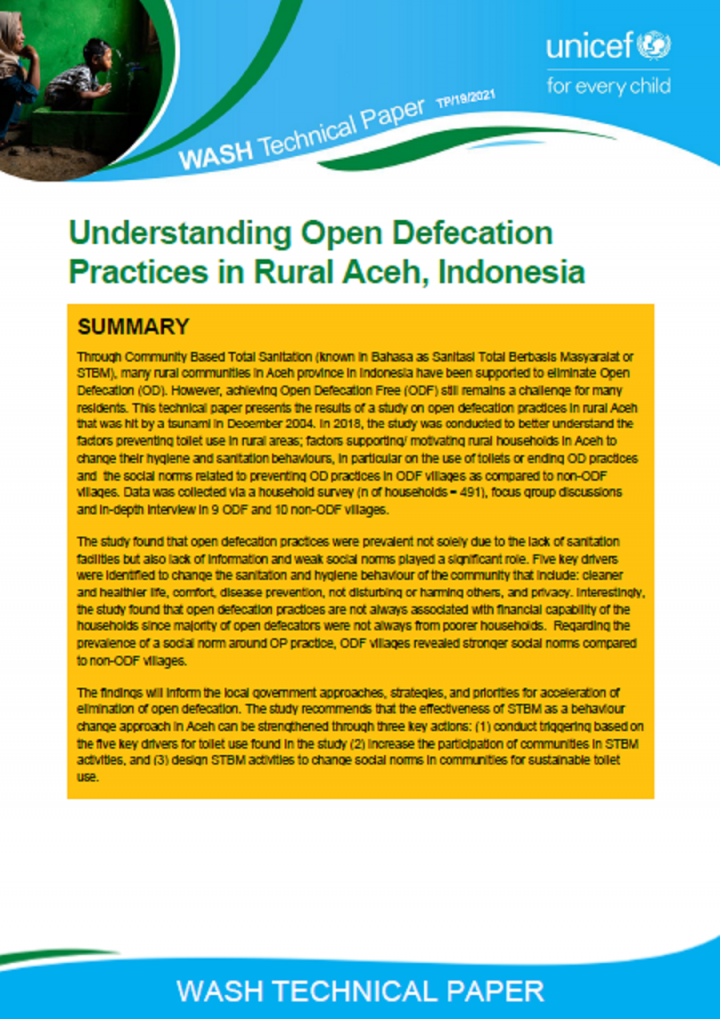
Published in: 2022
Pages: 11
Publisher:
UNICEF
Author:
M. A. Kurniawan
Uploaded by:
SuSanA Admin
Partner profile:
common upload
1502 Views
16 Downloads
Through Community Based Total Sanitation (known in Bahasa as Sanitasi Total Berbasis Masyaralat or STBM), many rural communities in Aceh province in Indonesia have been supported to eliminate Open Defecation (OD). However, achieving Open Defecation Free (ODF) still remains a challenge for many residents. This technical paper presents the results of a study on open defecation practices in rural Aceh that was hit by a tsunami in December 2004. In 2018, the study was conducted to better understand the factors preventing toilet use in rural areas; factors supporting/ motivating rural households in Aceh to change their hygiene and sanitation behaviours, in particular on the use of toilets or ending OD practices and the social norms related to preventing OD practices in ODF villages as compared to non-ODF villages. Data was collected via a household survey (n of households = 491), focus group discussions and in-depth interview in 9 ODF and 10 non-ODF villages.
The study found that open defecation practices were prevalent not solely due to the lack of sanitation facilities but also lack of information and weak social norms played a significant role. Five key drivers were identified to change the sanitation and hygiene behaviour of the community that include: cleaner and healthier life, comfort, disease prevention, not disturbing or harming others, and privacy. Interestingly, the study found that open defecation practices are not always associated with financial capability of the households since majority of open defecators were not always from poorer households. Regarding the prevalence of a social norm around OP practice, ODF villages revealed stronger social norms compared to non-ODF villages.
The findings will inform the local government approaches, strategies, and priorities for acceleration of elimination of open defecation. The study recommends that the effectiveness of STBM as a behaviour change approach in Aceh can be strengthened through three key actions: (1) conduct triggering based on the five key drivers for toilet use found in the study (2) increase the participation of communities in STBM activities, and (3) design STBM activities to change social norms in communities for sustainable toilet use.
Bibliographic information
M. A. Kurniawan (2022). Understanding Open Defecation Practices in Rural Aceh, Indonesia. UNICEF
Filter tags
East Asia & Pacific English














